|
Books Should Be Free Loyal Books Free Public Domain Audiobooks & eBook Downloads |
|
|
Books Should Be Free Loyal Books Free Public Domain Audiobooks & eBook Downloads |
|
History Books |
|---|
|
Book type:
Sort by:
View by:
|
By: Marcus Vitruvius Pollio (75 BC - c. 15 BC) | |
|---|---|
 Ten Books on Architecture
Ten Books on Architecture
On Architecture is a treatise on architecture written by the Roman architect Vitruvius and dedicated to his patron, the emperor Caesar Augustus as a guide for building projects. The work is one of the most important sources of modern knowledge of Roman building methods as well as the planning and design of structures, both large (aqueducts, buildings, baths, harbours) and small (machines, measuring devices, instruments). He is also the prime source of the famous story of Archimedes and his bath-time discovery. | |
By: Joseph Lewis French (1858-1936) | |
|---|---|
 Great Pirate Stories
Great Pirate Stories
Piracy embodies the romance of the sea at its highest expression. It is a sad but inevitable commentary on our civilization, that, so far as the sea is concerned, it has developed from its infancy down to a century or so ago, under one phase or another of piracy. If men were savages on land they were doubly so at sea, and all the years of maritime adventure–years that added to the map of the world till there was little left to discover–could not wholly eradicate the piratical germ. | |
By: John Charles Dent (1841-1888) | |
|---|---|
 The Story of the Upper Canadian Rebellion, Volume 1
The Story of the Upper Canadian Rebellion, Volume 1
| |
By: Harold MacGrath (1871-1932) | |
|---|---|
 The Puppet Crown
The Puppet Crown
| |
By: Horace Walpole (1717-1797) | |
|---|---|
 The Letters of Horace Walpole, Earl of Orford — Volume 1
The Letters of Horace Walpole, Earl of Orford — Volume 1
| |
 Historic Doubts on the Life and Reign of King Richard the Third
Historic Doubts on the Life and Reign of King Richard the Third
| |
By: Marie Belloc Lowndes (1868-1947) | |
|---|---|
 The Lodger
The Lodger
The Lodger by Marie Belloc Lowndes was inspired by the Jack the Ripper murders. An older couple, the Buntings, are forced to take in lodgers to make ends meet. They are on the verge of starvation when a mysterious man, Mr. Sleuth, appears at their door and asks for lodging, paying in advance. However, when the murders of young women in London attributed to a man known only as “The Avenger” continue, the Buntings, particularly Mrs. Bunting, grow fearful that their lodger may be the murderer. | |
By: H. Rider Haggard (1856-1925) | |
|---|---|
 The Brethren
The Brethren
Set in the days of the Crusaders, this books tells of a young maiden named Rosamund, and her twin cousins. Godwin is the grey eyed thoughtful man, and Wulf is the blue eyed warrior. They are both knights of England and they are both in love with their fair cousin. But the riddle of the story is which does Rosamund love?The adventure begins when Rosamund is taken from England and carried to the East. The plot thickens as the two young knights follow her in hopes of rescuing her from the Muslim leader, Saladin... | |
By: Henry Rider Haggard (1856-1925) | |
|---|---|
 Cleopatra
Cleopatra
| |
 The Lady of Blossholme
The Lady of Blossholme
| |
 Swallow: a tale of the great trek
Swallow: a tale of the great trek
| |
 Moon of Israel
Moon of Israel
| |
 Red Eve
Red Eve
| |
 Morning Star
Morning Star
| |
By: J. O. Choules | |
|---|---|
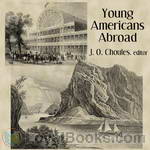 Young Americans Abroad – Vacation in Europe
Young Americans Abroad – Vacation in Europe
It’s 1851 and the Crystal Palace Exhibition is on in England. English American the Reverend Dr. Choules leaves Newport, Rhode Island with three teenaged students – James Robinson, George Vanderbuilt, and Weld French, who are forced to leave the fourth member of their blue-blooded quartet at home – and all four travelers promise to write to “Dear Charley”, Charles Duston, of later fame. The boys meet the Duke of Wellington, travel down the Rhine, and meet many friends along the way. While the letters are filled with some prejudice against the Catholic religion, they are a product of their time – a sometimes ignorant, but often dazzling, period of our history. | |
By: Walter Scott (1771-1832) | |
|---|---|
 Rob Roy — Volume 01
Rob Roy — Volume 01
| |
 Marmion
Marmion
| |
By: John George Nicolay | |
|---|---|
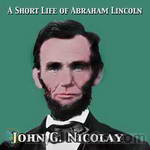 A Short Life of Abraham Lincoln
A Short Life of Abraham Lincoln
John G. Nicolay was Abraham Lincoln’s private White House secretary. With assistant secretary, John Hay, he wrote the two volume definitive biography of Lincoln, “Abraham Lincoln, a Biography.” Although this is a condensation by Nicolay of that biography, it is still a sizable work and a fairly thorough treatment of the life of the 16th president of the United States. | |
By: Charles Mackay (1814-1889) | |
|---|---|
 Memoirs of Extraordinary Popular Delusions and the Madness of Crowds
Memoirs of Extraordinary Popular Delusions and the Madness of Crowds
The book chronicles and vilifies its targets in three parts: “National Delusions”, “Peculiar Follies”, and “Philosophical Delusions”.The subjects of Mackay’s debunking include alchemy, beards (influence of politics and religion on), witch-hunts, crusades and duels. Present day writers on economics, such as Andrew Tobias, laud the three chapters on economic bubbles. | |
By: Frances Calderón de la Barca (1804-1882) | |
|---|---|
 Life in Mexico
Life in Mexico
FRANCES CALDERON DE LA BARCA, born in Edinburgh, 1804, the daughter of William Inglis. After her father’s death she settled in America, where she married the Spanish diplomat, Don Angel Calderon de la Barca. She accompanied him on his various appointments to Mexico, Washington, and finally to Madrid, where she was created Marquesa de Calderon de la Barca by Alfonso XII and died in 1882. The present work is the result of observations made during a two years’ residence in Mexico, by a lady, whose position there made her intimately acquainted with its society, and opened to her the best sources of information in regard to whatever could interest an enlightened foreigner... | |
By: John R. Hale | |
|---|---|
 Famous Sea Fights
Famous Sea Fights
I propose to tell in non-technical and popular language the story of some of the most remarkable episodes in the history of sea power. I shall begin with the first sea-fight of which we have a detailed history—the Battle of Salamis (B.C. 480), the victory by which Themistocles the Athenian proved the soundness of his maxim that “he who commands the sea commands all.” I shall end with the last and greatest of naval engagements, the Battle of Tsu-shima, an event that reversed the long experience of victory won by West over East, which began with Salamis more than two thousand years ago... | |
By: Henry Cabot Lodge (1850-1924) | |
|---|---|
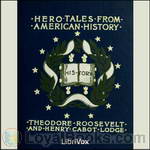 Hero Tales from American History
Hero Tales from American History
Its purpose … is to tell in simple fashion the story of some Americans who showed that they knew how to live and how to die; who proved their truth by their endeavor; and who joined to the stern and manly qualities which are essential to the well-being of a masterful race the virtues of gentleness, of patriotism, and of lofty adherence to an ideal. It is a good thing for all Americans … to remember the men who have given their lives in war and peace to the service of their fellow-countrymen, and to keep in mind the feats of daring and personal prowess done in time past by some of the many champions of the nation in the various crises of her history. | |
By: Isabella L. Bird (1831-1904) | |
|---|---|
 A Lady's Life in the Rocky Mountains
A Lady's Life in the Rocky Mountains
Isabella Bird began travelling while in her early twenties to help alleviate illness that had plagued her since childhood. She was a single woman in her early forties when she made her treck through the Rocky Mountains. A Lady’s Life in the Rocky Mountains details this fascinating account of her travels through a series of letters written to her sister, Henrietta. These letters are filled with beautiful, vivid descriptions of the scenery, the people she encountered, the way of life, and a mountain man named Jim Nugent, that was as rough as they come, but a complete gentleman with Ms... | |
By: Sir Henry Morton Stanley (1841-1904) | |
|---|---|
 How I Found Livingstone
How I Found Livingstone
Sir Henry Morton Stanley is famously quoted for saying “Dr Livingstone, i Presume?”. Born in Wales, he migrated over to the United States at the age of 18, and eventually became an overseas correspondent for the New York Herald. In 1869 Stanley was told by James Gordon Bennett Jr to find Livingstone, a scottish missionary and explorer, who was lost in central Africa. When Stanley commented on the cost Bennett’s reply was: “Well, I will tell you what you will do. Draw a thousand pounds now; and when you have gone through that, draw another thousand, and when that is spent, draw another thousand, and when you have finished that, draw another thousand, and so on; but, FIND LIVINGSTONE. | |
By: Oliver Optic | |
|---|---|
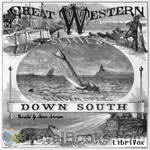 Down South or Yacht Adventure in Florida
Down South or Yacht Adventure in Florida
"Down South" is the fifth and last volume but one of the "Great Western Series." The action of the story is confined entirely to Florida; and this fact may seem to belie the title of the Series. But the young yachtsman still maintains his hold upon the scenes of his earlier life in Michigan, and his letters come regularly from that State. If he were old enough to vote, he could do so only in Michigan; and therefore he has not lost his right to claim a residence there during his temporary sojourn in the South... | |
 Within The Enemy's Lines
Within The Enemy's Lines
| |
 On The Blockade
On The Blockade
| |
 Stand By The Union
Stand By The Union
| |
 Fighting for the Right
Fighting for the Right
| |
 Taken by the Enemy
Taken by the Enemy
| |
 A Lieutenant at Eighteen
A Lieutenant at Eighteen
| |
 An Undivided Union
An Undivided Union
| |
 The Young Lieutenant or, The Adventures of an Army Officer
The Young Lieutenant or, The Adventures of an Army Officer
| |
 A Victorious Union
A Victorious Union
| |
By: J. M. Barrie (1860-1937) | |
|---|---|
 Margaret Ogilvy
Margaret Ogilvy
| |
By: Alexandre Exquemelin (c. 1645-1707) | |
|---|---|
 The Pirates of Panama
The Pirates of Panama
This volume was originally written in Dutch by John Esquemeling, and first published in Amsterdam in 1678 under the title of De Americaeneche Zee Roovers. It immediately became very popular and this first hand history of the Buccaneers of America was soon translated into the principal European languages. The first English edition was printed in 1684. Esquemeling served the Buccaneers in the capacity of barber-surgeon, and was present at all their exploits. Little did he suspect that his first hand observations would some day be cherished as the only authentic and true history of the Buccaneers and Marooners of the Spanish Main... | |
By: Gilbert White (1720-1793) | |
|---|---|
 The Natural History of Selborne
The Natural History of Selborne
The Reverend Gilbert White was the curate of the village of Selborne, a village in Hampshire, from 1784 to his death in 1793, living most of his life in the village. The book is in the form of a collection of letters to two friends, discussing the natural history of the areas that he knew, and natural history in general. White’s intense curiosity and his love for the world about him flow through his simple, straightforward style, and a gentle sense of humour colours many of his anecdotes. | |
 The Natural History of Selborne, Vol. 1
The Natural History of Selborne, Vol. 1
| |
 The Natural History of Selborne, Vol. 2
The Natural History of Selborne, Vol. 2
| |
By: Francis Parkman, Jr. | |
|---|---|
 The Oregon Trail
The Oregon Trail
The book is a breezy, first-person account of a 2 month summer tour of the U.S. states of Nebraska, Wyoming, Colorado, and Kansas when Parkman was 23. Proofed and produced by Karen Merline. | |
By: Edward R. Shaw (1855-1903) | |
|---|---|
 Discoverers and Explorers
Discoverers and Explorers
Tales of the brave and daring explorers that ventured into the unknown “Sea of Darkness” where it was thought monsters and angry gods lived. They dared to sail near the equator which was thought to have such intense heat that it would boil the ocean water. It was also commonly thought at the time that the world was flat, and the ships would fall off the face of the earth. These men overcame these fears to explore and discover new lands. | |
By: William R. Lighton (1866-1923) | |
|---|---|
 Lewis and Clark: Meriwether Lewis and William Clark
Lewis and Clark: Meriwether Lewis and William Clark
Meriwether Lewis and William Clark – In the years 1804, 1805, and 1806, two men commanded an expedition which explored the wilderness that stretched from the mouth of the Missouri River to where the Columbia enters the Pacific, and dedicated to civilization a new empire. Their names were Meriwether Lewis and William Clark. This book relates that adventure from it’s inception through it’s completion as well as the effect the expedition had upon the history of the United States. | |
By: Charles King (1844-1933) | |
|---|---|
 A War-Time Wooing A Story
A War-Time Wooing A Story
| |
 Ray's Daughter A Story of Manila
Ray's Daughter A Story of Manila
| |
 Waring's Peril
Waring's Peril
| |
By: William Beatty, M.D. (1773-1842) | |
|---|---|
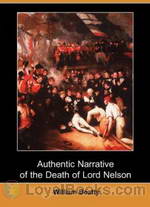 The Death of Lord Nelson
The Death of Lord Nelson
“The Surgeon of the late illustrious Lord NELSON feels himself called upon, from the responsible situation which he held on the eventful day of the 21st of October 1805, to lay before the British Nation the following Narrative. It contains an account of the most interesting incidents which occurred on board the Victory. (Lord NELSON’s flag-ship) from the time of her sailing from England, in the month of September, till the day of battle inclusively”. – William Beatty | |
By: Owen Wister (1860-1938) | |
|---|---|
 The Pentecost of Calamity
The Pentecost of Calamity
Nonfiction. Appalled by the savagery of World War I, Owen Wister in 1915 published an attempt to move the United States out of neutrality into joining the Allies against Germany. His aim was the quicker defeat of that nation. (Wister: “the new Trinity of German worship – the Super-man, the Super-race, and the Super-state.”) He was but one of many literary personages who joined in this effort. A moving quote: “Perhaps nothing save calamity will teach us what Europe is thankful to have learned again – that some things are worse than war, and that you can pay too high a price for peace; but that you cannot pay too high for the finding and keeping of your own soul.” | |
 Lady Baltimore
Lady Baltimore
Augustus visits King's Port, South Carolina, at the request of his Aunt Carola, and at her expense. She wants him to research geneaologies and records to find proof that he is descended from royalty so that he can join her exclusive club, the Colonial Society. While there, he becomes involved in a love affair between John Mayrant and Eliza La Heu. | |
 A Straight Deal or The Ancient Grudge
A Straight Deal or The Ancient Grudge
| |
By: Arthur William Knapp (1880-1939) | |
|---|---|
 Cocoa and Chocolate: Their History from Plantation to Consumer
Cocoa and Chocolate: Their History from Plantation to Consumer
As that heavenly bit of chocolate melts in our mouths, we give little thought as to where it came from, the arduous work that went in to its creation, and the complex process of its maturation from a bean to the delicacy we all enjoy. This “little book” details everything you have ever wanted to know (and some things you never knew you wanted to know) about cocoa and chocolate from how the trees are planted and sustained to which countries produce the most cacao beans. Do cacao beans from various... | |
By: William Joseph Long (1867-1952) | |
|---|---|
 Outlines of English and American Literature : an Introduction to the Chief Writers of England and America, to the Books They Wrote, and to the Times in Which They Lived
Outlines of English and American Literature : an Introduction to the Chief Writers of England and America, to the Books They Wrote, and to the Times in Which They Lived
| |
 Secrets of the Woods
Secrets of the Woods
The unique merit of this nature student rests in his fascinating style of writing, which invariably interests young and old; for without this element his pioneer work in the realm of nature would now be familiar only to scientists, introducing people everywhere into the wonderland of nature hitherto entirely closed to all. This is another chapter in the shy, wild life of the fields and woods. Little Toohkees, the wood mouse that dies of fright in the author’s hand; the mother otter, Keeonekh,... | |
By: Ruth Edna Kelley | |
|---|---|
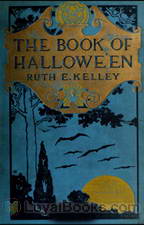 The Book of Hallowe'en
The Book of Hallowe'en
This book is intended to give the reader an account of the origin and history of Hallowe’en, how it absorbed some customs belonging to other days in the year,—such as May Day, Midsummer, and Christmas. The context is illustrated by selections from ancient and modern poetry and prose, related to Hallowe’en ideas. | |
By: George Berkeley (1685-1753) | |
|---|---|
 A Treatise Concerning the Principles of Human Knowledge
A Treatise Concerning the Principles of Human Knowledge
A Treatise Concerning the Principles of Human Knowledge, Part 1 (Commonly called “Treatise” when referring to Berkeley’s works) is a 1710 work by the Irish Empiricist philosopher George Berkeley. It largely seeks to refute the claims made by his contemporary John Locke about the nature of human perception. Both Locke and Berkeley agreed that there was an outside world, and it was this world which caused the ideas one has within one’s mind. Berkeley sought to prove that the outside world was also composed solely of ideas, suggesting that “Ideas can only resemble Ideas”... | |
By: Richard Harding Davis (1864-1916) | |
|---|---|
 Notes of a War Correspondent
Notes of a War Correspondent
Experiences and observations of the journalist in the Cuban-Spanish War, the Greek-Turkish War, the Spanish-American War, the South African War, and the Japanese-Russian War, accompanied by "A War Correspondent’s Kit." | |
 Men of Zanzibar
Men of Zanzibar
This is the story of Hemingway, who, after a hunting trip in Uganda, settles in Zanzibar for a while to live among the English-speaking expatriate community on that island. While keeping his true identity well to himself, he falls in love with Ms. Polly Adair, the American Belle of the little society. But when he asks her to marry him, it seems that Ms. Adair has a secret... | |
 Adventures and Letters of Richard Harding Davis
Adventures and Letters of Richard Harding Davis
| |
 With the French in France and Salonika
With the French in France and Salonika
| |
 With the Allies
With the Allies
| |
By: www.mikevendetti.com | |
|---|---|
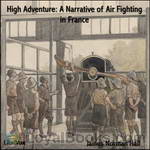 High Adventure A Narrative of Air Fighting in France
High Adventure A Narrative of Air Fighting in France
High Adventure A Narrative of Air Fighting in France by James Norman Hall; you will find this book although an exciting narrative has an unpolished feel because it was published in June of 1918 while Mr. Hall was a captive in a German POW camp. When he was captured behind enemy lines, the book was still a work in progress. The Armistice would not be reached until November of that year. Although he does not mention it in this book, Mr. Hall had already served the better part of 15 months with the British Expeditionary Forces, surviving the battle of Loos in Sept – Oct 1915, and upon which his excellent work “Kitchener’s” Mob is Based... | |